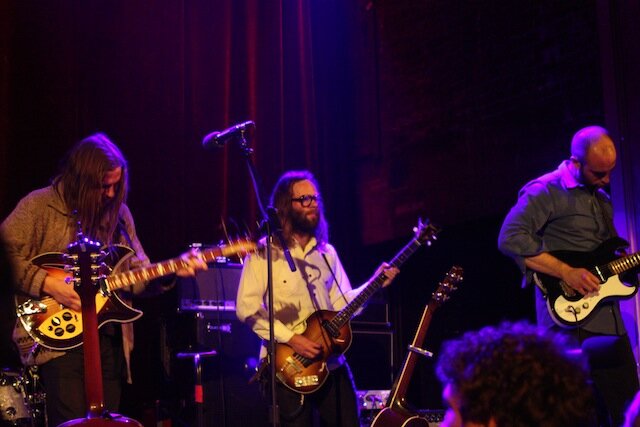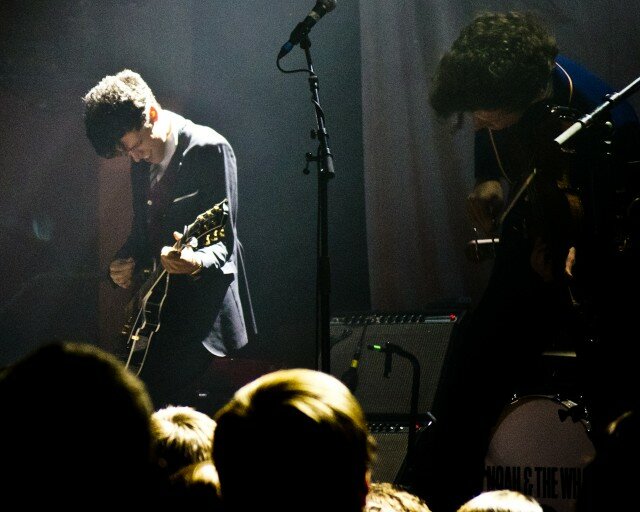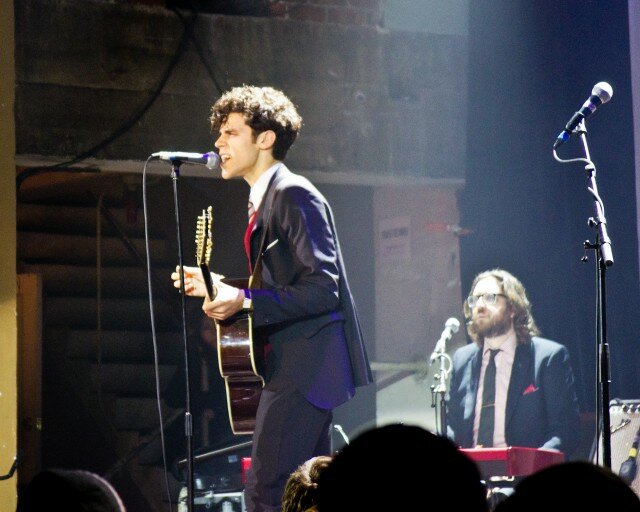Ever since her release party at the Neptune for Deer Creek Canyon (Sub Pop), I’ve been walking the gray, fall streets of Seattle, kicking leaves and listening to Sera Cahoone as if I’m an age-old fan–though I don’t recall ever catching her live before. It seems to me that I would recall hearing the combination of Cahoone’s voice and Jeff Fielder’s picking on banjo and dobro.
Speaking of picking, let’s address the Americana issue head-on: My suspicion is that it’s a term used mainly by people who make what used to be called country music but who don’t want to be lumped in with Taylor Swift or Rascal Flatts or people for whom the Civil War is primarily a question of federal overreach.
My tastes in this area run toward the outlaw-country of Viva Terlingua, and I feel like Jerry Jeff Walker himself would have hollered a few times there at the Neptune. Cahoone’s band, fresh off a European tour for the album, kept up a Deliverance-style, folksy ease, while just killing it: Jason Kardong, pedal steel; Sarah Standard, violin; Jonas Haskins, bass; and Jason Merculief, drums; with Tomo Nakayama sitting in on piano and organ.
And soaring on top of it all, Cahoone’s voice, slightly husky and toughened (as on the title track), but capable of taking off, upward, surprisingly strongly, like a grouse’s feathery rocketing out of a bush (“Naked”).
Frequently, in her Deer Creek Canyon songs, Cahoone finds herself heading the opposite way she once meant to go: “Please understand, this wasn’t what I planned,” she asks in “Nervous Wreck,” a skittery up-tempo number where, nonetheless, something has not gone quite right. In “Rumpshaker,” it’s “I know at the time you meant a lot to me / but now I don’t care if I stay or I leave.”
She told No Depression:
Deer Creek Canyon has always been a very special place to me. It’s a beautiful canyon in Littleton Colorado. My mother lives up on the top of one of the mountains there. My father also lives in Littleton but in more of the suburbs. So I would go back and forth.
It’s not the kind of ambivalence where someone is frozen between two choices. Cahoone is on the move, a seasonal nomad. “Forget you in summer / by fall, I always want you back,” she sings of where she grew up.
Whether it’s home in the world or home in the heart, Cahoone locates herself in that pull between here and there. When she sings, in “Any Way You Like,” that “I’m already in your life / so take me anyway you like / I’m right in front of you / before I change my mind,” you know that, as her declaration rises toward a drum-driven anthem, to pay attention to that last reversal.
For all that, the ballad “And Still We Move,” might be the song that takes your feet from beneath you. It’s at Patsy Cline on the heart-breaker: “I’m tryin’ hard,” Cahoone sings, stretching the “hard” into a physical act, “not to erase–all of you.” My only regret is that the song doesn’t go on longer.













